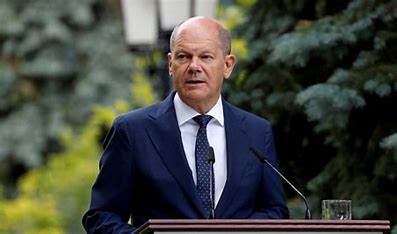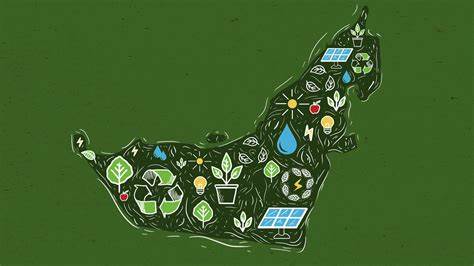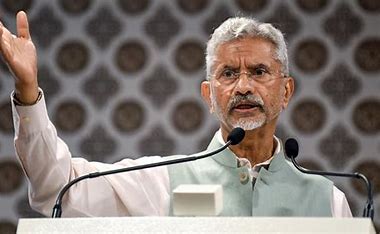
Cannabis, which has many other forms such as Ganja, Charas or Bhang is a type of physio-pharmaceutical drug. Marijuana often evokes images of euphoria and relaxed lethargy. Some of the earliest human cultures ingested and smoked the leaves of the plant, and its consumption has persisted in modern society. Although it’s most commonly used as a recreational drug, marijuana also has important medicinal, religious, and spiritual applications. To some, it’s an important clinical substance that functions as a pain reliever, appetite booster, and sleeping aid. When smoke of cannabis is inhaled, rapid flow of THC takes place in the bloodstream of individual through lungs and is circulated throughout the body parts including brain. This THC impacts the brain receptors which eventually causes euphoria, dizziness etc. Hence the person who consumes the same experiences enhances sensory awareness & comfortable mentally.
MEDICAL USES
Objectively though, there are some scientific data to show that marijuana has some medical uses, foremost of which is the relief of pain, severe nausea and vomiting in cancer patients receiving anticancer chemotherapy or radiotherapy. In terminally ill cancer and AIDS patients, when treatment has shifted to palliative from curative, cannabis —which is also available in capsule or pill form in other countries—can make the patients more comfortable, with less pain and angst during the remaining days or weeks of their lives. It can allow for a peaceful death—something which the family of a terminally ill patient would find comfort in, seeing that their loved one has gone with tolerable pain and distress. Some would call it “leaving with dignity.” Cannabis has been reported to have other medicinal uses like relief of severe spasticity, chronic muscle and joint pains unrelieved by conventional treatments, psychological and mental conditions like attention deficit hyperactivity disorder, autism, bipolar disorder, childhood mental disorders, depression, alcoholism and Tourette syndrome.
ACTIVE INGREDIENT
The active ingredient in the cannabis plant is tetrahydrocannabinol (or delta-9-tetrahydrocannabinol, commonly known as THC). Other cannabis extracts or cannabinoids include delta-8-tetrahydrocannabinol, cannabidiol, cannabinol, cannabicyclol, cannabichromeme and cannabigerol. All of these other cannabinoids are less potent than THC but may also play a contributory role in the overall effect of cannabis in the body. I can imagine that our health authorities, particularly our Food and Drug Administration (FDA), are mentally struggling on the issue whether to legalize medical marijuana or not. Despite the potential benefits of marijuana, it has potential negative side effects — it serves as a “gateway drug” to other dangerous substances and is linked with increased rates of crime and delinquency. High-frequency marijuana use has also been associated with neurological abnormalities, respiratory issues, and improper perinatal development. A major roadblock in marijuana legalization is a lack of carefully conducted clinical trials. The United States Food and Drug Administration (FDA) requires thousands of clinical subjects in controlled experiments in order to push the development of a drug. So far, researchers have not published enough large-scale clinical studies which indicate that the benefits of marijuana outweigh its risks. However, the merits of marijuana cannot be ignored. Its prospective medical applications are various, and its status as an illegal drug is undergoing a shift as more people are accepting its recreational use.
CUSTOMARY IMPORTANCE OF CANNABIS IN INDIA
If we start tracing the initial point or having said that the customary importance of cannabis in India we can trace various connections of it with Lord Shiva who is worshipped as the Supreme God in the Hindu Religion. Indian festival such has Maha Shivratri has always witnessed consumption of cannabis because it has always been perceived that elixir of life can be purified with cannabis consumption and is also mentioned within the Hindu scriptures. Various initiatives were taken to highlights its benefits scientific and economical benefit but still no changes took place in the existing legislation for the same. In the earlier times, it was legal to consume cannabis in India, but India was pressurized by the United States since year 1961 to introduce a ban upon cannabis production. As a consequence, to such pressure, India finally introduced a Narcotics Drugs and Psychotropic Substances Act which eventually prohibited producing and selling of cannabis flowers and resin. However, the permission regarding usage of leaves and seeds was granted and the states was allowed to regulate the same accordingly.
LEGAL STATUS
The Narcotic Drugs and Psychotropic Substances Act of 1985 provides the definition of cannabis (hemp) as the following and prohibits the same:
Charas: It is a raisin separated in either crude or purified form and obtained through the plant of cannabis. Its oil is known as hashish oil.
Ganja: The fruiting or flowering tops after seeds and leaves are excluded from the cannabis plant.
Any other sort of mixture, inclusive of any form of cannabis mentioned above or any drink prepared individually from such forms or by adding neutralizing material to the same.
Case Law: It is pertinent to note that Narcotic Drugs and Psychotropic Substances Act does not provide any specific definition of “Bhang” which is also a form of cannabis and hence, it is legal to sell and consume bhang in India and is highly consumed in religious cities of northern India. The bhang is sold in government authorized shops and governments keeps a check over sale of bhang as it be used with malicious intention to prepare a new substance which can eventually be potent intoxicant. In Arjun Singh v State of Haryana case, it was held by the High Court of Chandigarh that as far as Narcotic Drugs and Psychotropic Substances Act is concerned, bhang cannot be considered as the cannabis (hemp). However, court also added that it is a product of cannabis plant. It clarified the perception that consuming cannabis leaves is not illegal however, production of cannabis plat is illegal.
PROS OF LEGALISATION OF MARIJUANA
1. Medical science and cannabis share a relationship with each other since ages. In many countries it is prescribed for those patients who are undergoing chemotherapy for cancer treatment. Studies have proved that cannabis is capable of preventing metastasis in the cases of aggressive cancer.
2. Enhanced production will eventually provide newer revenue opportunities for government other than liquor and tobacco. Such, revenue generated can be further utilized for welfare of general public.
3. India is one of the most favourable location for production of cannabis. If the cannabis is legalized, it will lead to higher production of the same which would in turn increase exports of our country India in a huge way.
4. It will be a very big boost to the agricultural sector of India, Since, the cannabis has numerous ways of usage, its demand will be higher and farmers will be having an alternative to produce and gain higher profits.
5. Cannabis has various components which are proved to be effective in curbing mental health issues, it will act as an antidepressant having less side effects than the chemical drugs that are given to patients in today’s time.
6. As a result of statutory prohibitions, trade of cannabis is taking place illegally within the country. If the cannabis is legalized, it will be formally and openly produced and will eventually prevent any sort of illegal trade killing the black market of the same.
CONS OF LEGALISATION OF MARIJUANA
1. The cannabis inhabits an active ingredient known as carcinogens which has a severe impact on the respiratory system. If any individual inhales the smoke of cannabis, he will be exposed to high volume of carcinogens which can be further lead to conditions which can even be life-threatening.
2. Constant consumption of cannabis will eventually develop a drug habit and once that habit is developed, it is not easy to deal with it. Those individuals who have tried to give up such habit have seen various symptoms such as depression, anxiety, fits of rage, headaches and emotional outbursts.
3. Marijuana can obstruct the user’s short-term memory and the ability to perform tasks like studying. Because of its effect on perceptions, marijuana can interrupt various skills such as driving and machine operation. It may also cause hallucinations and affect one’s sexual behavior.
CONCLUSION
It might be a shock to many; but like marijuana, some of the substances that we consume are potentially habit-forming. These include alcohol, tobacco, coffee, and even refined sugar. For some, all of these are part of their daily consumption. Tobacco and alcohol are not safe, after all, and both are already reported to cause many serious conditions including cancer. In some countries, marijuana is an additional option to treatment and has paved way to the right to health of the people. It has been used as the last resort for untreatable conditions. A good demonstration of this is when marijuana was used to stop an American child’s severe seizures. Legalization of Marijuana is not a problem but it’s implementation is definitely one of the concerns in a country like India, also there should be guidelines on medical marijuana treatment, dose, and the route of administration that must also be established. Nonetheless, it is important that we open our minds to the potential benefits of marijuana. May we set aside any political barrier and be open to the possibilities that we could benefit from this disputed plant. If ever it is fully legalized within the country , I hope it won’t be profit-oriented and instead, patient-oriented and research-oriented with proper regulation and taxation.















